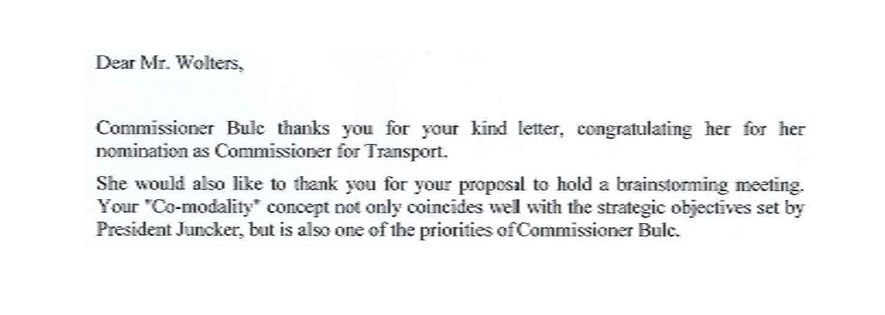During the last couple of months, dissemination activities were aimed at making CORE visible to the wider group of stakeholders. The launch of the CORE Website- / - and the corresponding press article was a key dissemination milestone. Other highlights were:
9th Future Security Research Conference, 16-18 September in Berlin (Germany)
During this major event, CORE was presented by Gerwin Zomer (TNO) in a plenary session with 4 other huge security Demonstration Projects, together consuming 200 million Euro of European Taxpayer money. The panel discussion following the project pitches concentrated on the question whether this will be worth it. Contrary to some of the other projects, CORE is truly end-user driven and has strong engagement of policy making entities that can really help creating the right framework condition to make things happen. Resilience was one of the hype topics, and Interesting discussions were held between researchers seeing advanced risk management as part of a holistic resilience approach and researchers (including me!) defending the opposite viewpoint: resilience is part of a more holistic risk management approach.
The CUSTOMS 2020 HIGH-LEVEL SEMINAR, 13-15 October in Venice (Italy)
This seminar on the future of electronic customs with special focus on single window implementation in the customs union, jointly organised by the Italian Presidency and DG TAXUD, included high level representatives (DG-level) of all European Member States. Gerwin Zomer presented CORE in a session on innovation and future outlook. Other CORE partners, such as Dutch/ Belgium/UK Customs, ESC, CLECAT and TUDelft were prominently present and highlighted the relevance of CORE. Discussion was furthermore on deployment of Customs Single Window and synergies with Maritime Single Window and other SW developments. A good exposure of CORE among one of the key end user groups!
CORE on Kewill Supply Chain Summit, 11 November in Amsterdam
On November 11th, Kewill organized its Supply Chain Summit in Amsterdam. Around 80 customers and business partners of Kewill were attending this day, discussing the latest trends in the world of Global Trade Management and Supply Chain Management, including warehouse management, transport management and execution and supply chain visibility. Gerwin Zomer was invited to speak about CORE and its vision on supply chain risk management. Gerwin used this event to validate the relevance of the CORE Agenda, and he found confirmation of the relevance of the collaborative chain control approach in advanced SCRM. Discussions about what integration of Global
Trade Management functionality and Supply Chain Visibility functionality could bring in terms of value added concentrated on next generation of Total Landed Cost approaches for importers and cargo owners, in which compliance cost is no longer a static value linked with customs duties, but a variable depending on the level of facilitation in a certain country. An interesting value proposition worth further consideration in CORE.
Intermodal Europe 2014, 12 November in Rotterdam (by Peter Wolters, Secretary General of EIA)
On November 12, CORE was presented by the European Intermodal Association at ‘Intermodal Europe’ which is the world-leading exhibition for the container transport and logistics industry (attendees covering over 90 countries).
Peter Wolters stressed that CORE is industrial and practical focused research driven by the industry that put cash at the table to be involved in this global intermodal exercise. Trade Facilitation is high on political agenda as well. Not only because authorities are eager to have a finger on the supply chain ‘pulse’, but because it is big business. Even President Obama signed an Executive Order (Febr. 2014) on Streamlining Export/Import Processes for America’s businesses.
Some interesting facts and figures were briefly presented, which will be further researched in CORE. Lack of interoperability in multimodal information exchange cost the EU around €7 BLN annually. Supply chain disruptions cut the share price of impacted companies by 7%. Wrong information: in 60% of declarations, customs do not know who the true consignor/consignee really is. Potential value of monitoring: sensitive goods monitoring service will reduce transport administration costs by 5%. Safety: the total number of hazardous goods related road accidents can be reduced by 0.2%, even more for intermodal rail transport.
CORE will be further introduced on high level. The new EU Commissioner for transport BULC invited EIA members (operators & shippers as user of intermodal transport) to her table. Indeed, intermodality (or Co-modality) covers various strategic objectives. Secure supply chains should be advocated for!

CORE on 1st IPCSA Research day, 13 November in Le Havre
On November 13th, the International Association of Port Community Associations organized their 1st research day. Around 60 professionals from PCS organisations from 14 different countries came together to identify and discuss the key research topics in their field. Gerwin Zomer was invited to present the CORE research agenda in the morning, followed by two parallel workshops identifying key research themes, such as value propositions and KPIs, legal frameworks, private public partnerships, Customs Union consequences, big data, new type of communities, and cybersecurity.
It appeared that almost all key priorities were also relevant in CORE, resulting in the conclusion to align where possible the R&D initiatives, findings and insights, via the 3 founding members of IPSCA and partner in CORE: DBH, Portic and MCP.